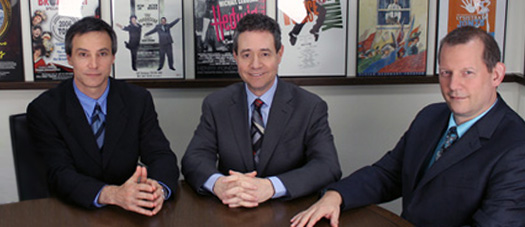Contact

In his article published in the September/October 2012 edition of THE DRAMATISTS, Ralph Sevush laments the encroachment by orchestrators and arrangers on the rights and income streams of composers and lyricists, suggesting that this is a direct result of the efforts of a single attorney exerting his “near monopoly over the talent” to establish “overscale” terms as the “going rate” for orchestrators and arrangers.
My name is Mark Sendroff and I am the attorney to whom Ralph refers, while ignoring the existence of all other attorneys and agents who represent orchestrators and arrangers. Ralph also fails to mention that I, as well as my partner, Jason Baruch and the other members of our firm, Sendroff & Baruch, LLP, represent many Dramatists Guild members and theatrical producers and are regularly faced with all sides of the issues raised in his article. As such, I would like to respond to some of the assertions made therein and suggest what I believe would have been a more productive focus for the article.
As an initial matter, there is no such thing as “overscale” for arrangers because, as Ralph correctly points out, there is no “scale” for arrangers, whose work does not fall under the union agreement. As for orchestrators, they are always paid royalties for commercial productions without any provision for such in the union agreement and consequently, they are always paid “overscale.” All of that happens without the efforts of a representative and I see nothing unreasonable about being paid overscale in certain situations. Aren’t theatre artists regularly paid overscale for reasons including experience, uniqueness, clout, difficulty of assignment, time deadlines, etc.?
While orchestrators of unsuccessful Broadway musicals are paid more than the songwriters in some instances, I don’t see that as relevant to the issue of whether subsequent producer licensees should be entitled to perpetual unlimited usage of the orchestrations in exchange for the tiny one-time buyout payment required by the union. As for arrangers, they are rarely paid anything close to what the songwriters receive, not to mention that the songwriters get to retain ownership of their work.
The article refers to the days when “orchestrators were paid only a fee for adapting the composer’s score into an orchestration.” I believe this job description is inaccurate and trivializes the value of an orchestrator’s contribution, both as an orchestrator and in most cases, as a de facto (and unpaid) song arranger. An orchestrator does not adapt a composer’s score—he or she adds to and enhances it. Orchestration is not a mechanical procedure; it is an art, requiring skill, taste and talent. Just as a theatrical designer retains ownership of his or her designs (enabling the designer to negotiate for credit and additional compensation if there is a request for subsequent use), so should the arranger and orchestrator be entitled to share in the stream of income from a subsequent use which benefits not only the composer, but the lyricist and the original producer and investors. (If my reference to the lyricist is surprising, think about how a good vocal arrangement and orchestration supports, enhances and “comments on” the lyrics—or emphasizes them by not allowing them to be buried.)
I suggest that this article would have been more valuable to its readers if it had discussed how far dramatists should be expected to go in protecting the music staff they select to prepare and enhance their score, including a description of the various ways such protection may be made available.
It should be noted that, in my experience, all representatives of orchestrators and arrangers address this issue in one way or another. As the article points out, sometimes the dramatists are asked to share a portion of their subsidiary rights income with the orchestrator and/or arranger. Alternatively, the parties can pre-negotiate royalties for future uses separately for each territory based on percentages of the original Broadway numbers. My personal preference is to ask the dramatists to agree that in the event they wish to have the original orchestrations and arrangements used in connection with subsequent productions, which the dramatists are not obligated to do, they require the subsequent producer to negotiate a credit and ongoing royalty with the arrangers and orchestrator. The article suggests that this results in the possibility of “eleventh hour demands” by the orchestrators and arrangers which could require the composers and lyricists to abandon the production or dig into their own pockets to ensure the production can proceed unencumbered. However, I have been involved in these types of deals for several decades on behalf of composers, lyricists, orchestrators, arrangers and producers and I can tell you that I have never once seen a deal fall apart (or an author forced to “chip in”) over this issue.
Orchestrators and arrangers contribute greatly to the value of the songwriters’ score and should be entitled to continue to be credited and compensated for the use of their work in most, if not all, situations where their work is exploited in tandem with the work of the dramatists. Regardless of which formula the representatives prefer to use to address this, I believe, as a vigorous proponent for the rights of authors, orchestrators and arrangers alike, that dramatists should take all reasonable steps to protect the interests of the music staff with whom they choose to collaborate.
Sendroff\Response to Ralph Sevush Article 092812
